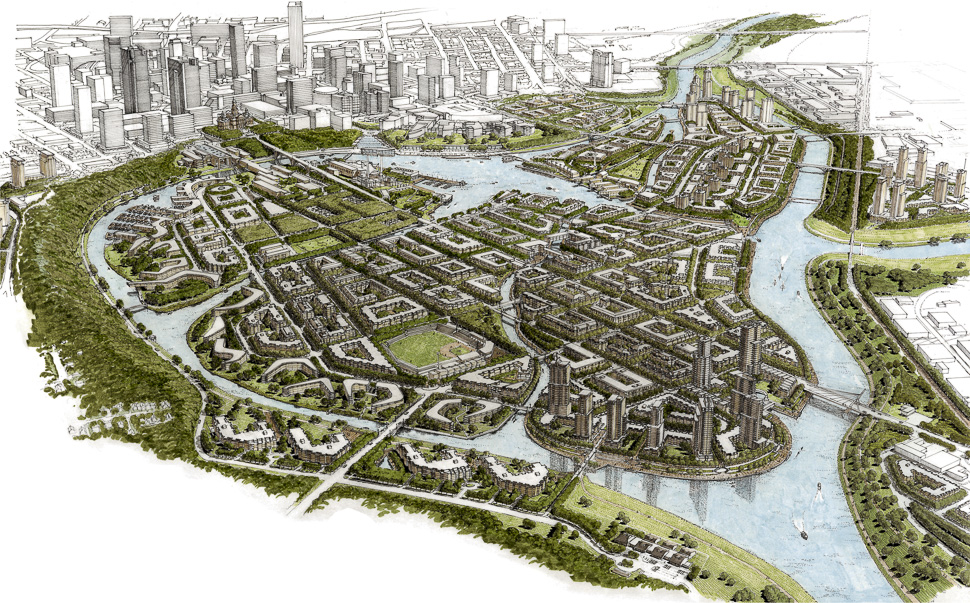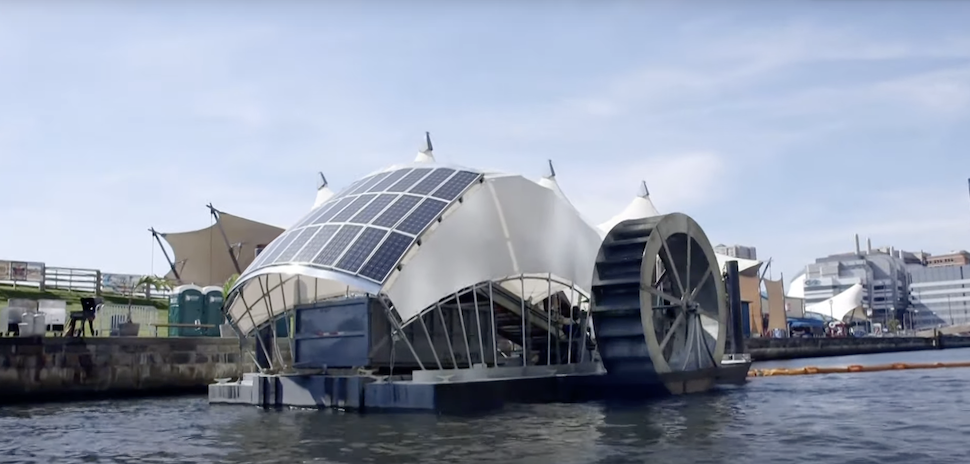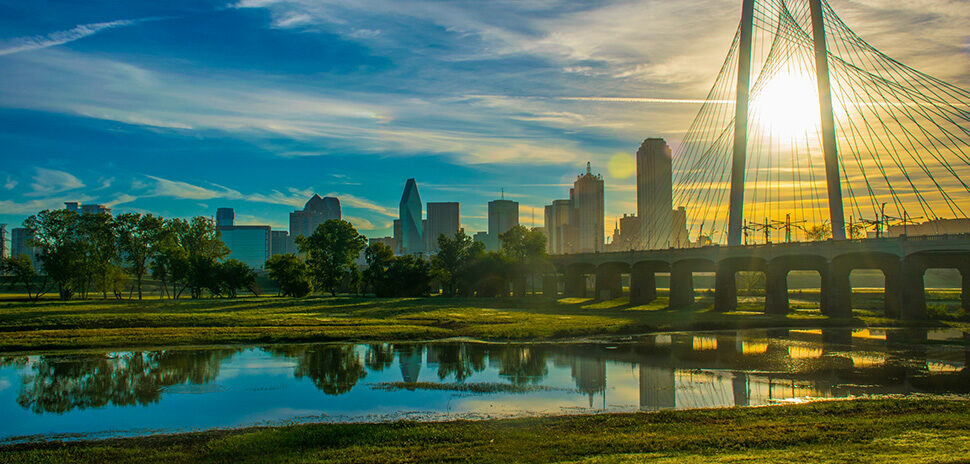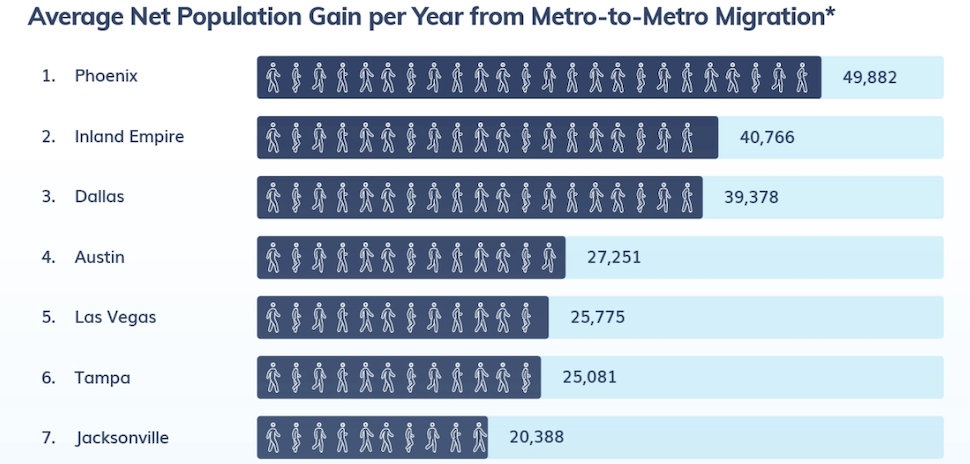Fort Worth’s Panther Island isn’t an island—yet. But plans announced Wednesday by the U.S. Army Corps of Engineers could finally bring it to life. The Corps said it will spend $403 million on the final design and build of a 1.5-mile flood-control bypass channel, which will reroute part of the Trinity River near downtown Fort Worth.
The channel will turn 800 acres of land into Panther Island—which the city hopes will become a massive housing and mixed-use entertainment and recreational district, connecting downtown Fort Worth to the city’s cultural district and the Stockyards.
The Panther Island project has been kicking around for nearly two decades. (You can read our 2017 story—one of our most-read stories ever—to see where the plans stood five years ago.) But the project always depended on the bypass channel—the centerpiece of the Trinity River Vision/Central City Flood Control Project.
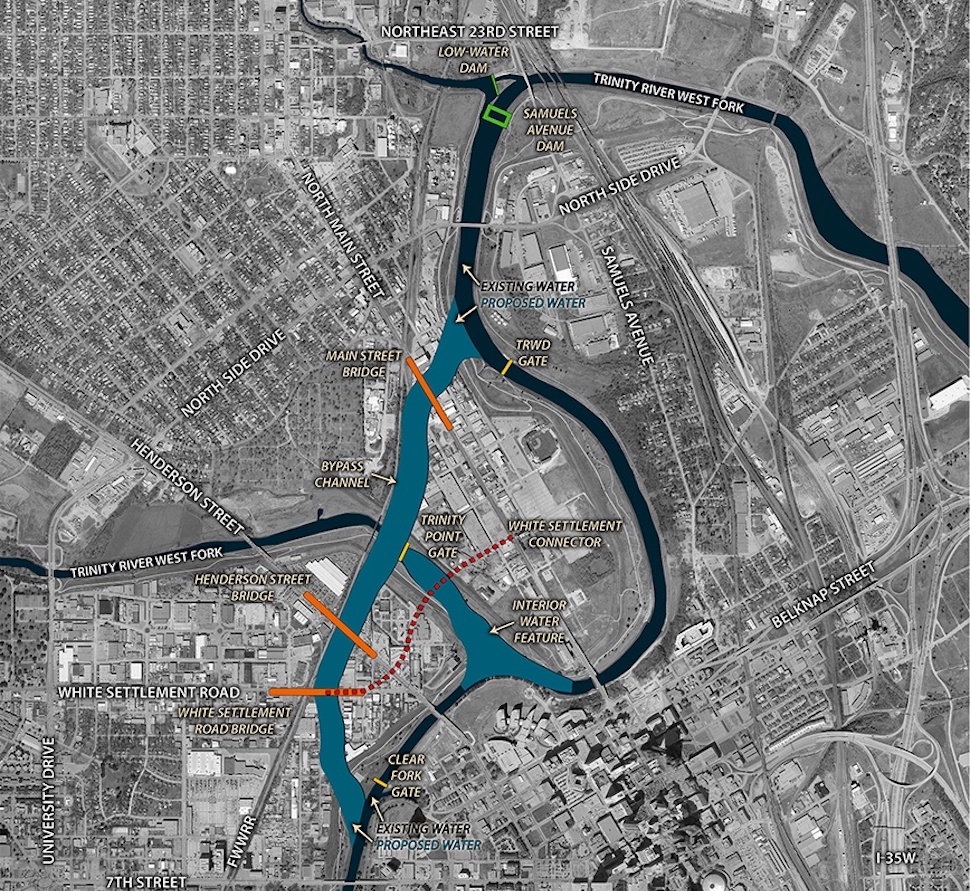
The bypass channel to be built by the Army Corps of Engineers will create Panther Island. [Image: Panther Island/Central City Flood Project]
‘An incredible moment in Fort Worth’s history’
“This is a great day for Fort Worth,” said Rep. Kay Granger (R-TX), Republican Leader of the House Appropriations Committee, in a statement. “As the leaders in flood control, I thank the U.S. Army Corps of Engineers for understanding that responsibility and addressing that need for Fort Worth. Today Fort Worth will be safer and stronger.”
“This is the go-time moment we have been anxiously awaiting,” Fort Worth Mayor Mattie Parker added. “We had confidence in the Corps of Engineers and our federal representatives. This funding announcement delivers the certainty that will make our community safer and the green light for further investment in the area. This is an incredible moment in Fort Worth’s history.”
“The Trinity River flood control project is a critical piece of infrastructure that will provide needed flood protection and growth opportunities to Fort Worth,” added Congressman Marc Veasey “I’m pleased to have been a part of the bipartisan team that got this project over the goal line.”
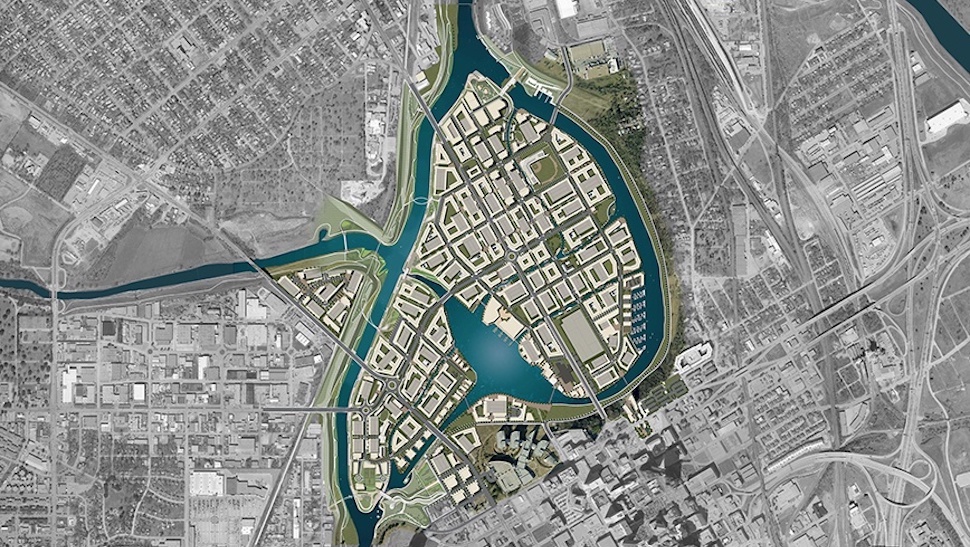
Overhead rendering of Panther Island’s build-out. [Image: Panther Island/Central City Flood Project]
NCTCOG team financed three Panther Island bridges
Michael Morris, the transportation director for the North Central Texas Council of Governments, may be one of the happiest recipients of the Corps of Engineers news. He was the leader of the team that financed construction of three Panther Island bridges—the last of which finally opened in October after long delays.
“This gives me some relief that we did not build our bridges in vain,” Morris told the Fort Worth Report. “That decision appears to have paid off, and I think Panther Island is a game changer for the city.”
The FWR notes that Panther Island’s total cost is estimated to be around $1.16 billion, with the Tarrant Regional Water District, the city of Fort Worth, the Texas Department of Transportation, and a tax increment financing zone slated to cover the rest of the funding. A $250 million bond package passed in 2018 will also help fund flood control and drainage operations for the island.
What’s next, and what’s to come
When the channel is completed—perhaps by 2025, according to a Trinity River Vision Authority timeline—it will be up to the private sector to invest in and fully build out Panther Island.
As the FWR article notes, the University of North Texas conducted a 2014 economic impact study that projected more than 29,600 full-time workers could be employed on Panther Island, generating over $3.7 billion in annual economic activity. The island could potentially be home to 10,000 housing units and 3 million square feet of commercial space.
The project is just one part of a larger reimagining of what the Trinity River could be as it winds its way through Fort Worth, Arlington, and Dallas. Could it become “the nucleus of a linear district that melds all of the region’s greatest assets into a “magnetic core,” as we wrote back in 2017?
In essence, it’s all a case of “If you build it, it will come.” Now that the Corps of Engineers is building the channel, Panther Island and a big new chapter for Fort Worth may finally be coming at last.
![]()
Get on the list.
Dallas Innovates, every day.
Sign up to keep your eye on what’s new and next in Dallas-Fort Worth, every day.

